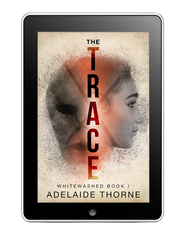|
So I mentioned before that my mom was a daydreamer. When her family members caught her zoning out, they would say that she was "Playing Bobby." No idea where that expression came from, but I do know what Playing Bobby means. Growing up, I assumed everyone daydreamed to the extent that I did. It wasn't until early adolescence that I noticed that none of my other friends daydreamed anymore. In fact, they'd never daydreamed like I had. For a while, I just felt like a weirdo. I was plagued by the desire to do something I should have stopped doing years earlier. Somehow, the topic came up with my mom, and that was when I realized I wasn't alone. She knew what daydreaming was, too. Lots of writers probably Play Bobby, she told me. That was where they got their stories. It was then that I became proud of my imagination and didn't resent it. So, what the heck does that even mean, and why can't you just call it "daydreaming" instead of talking about some guy named "Bobby" who none of us knows? Well, for starters, it doesn't mean that I can't distinguish between what's real and what's not. I don't believe I have mystical powers. I may be a proficient cat whisperer, but that's not imagined—that's real. Just ask my former piano teacher's cat, who only came downstairs when I came over for lessons. It wasn't because he wanted to tell me to stop hurting his ears; it was because he liked me. Thanks, Beethoven. Basically, it just means that I imagine a scene in my mind—say, two people arguing—and watch it unfold like a movie. It actually helps me solve conflicts, though sometimes I get carried away. When the conflict concludes with the other person sobbing and begging for understanding and forgiveness, I know I should probably try to be more realistic.
Before I write a scene, it helps if I close my eyes for a few minutes and imagine the scene that I want to write. When I don't do this beforehand, I usually write really crappily. (Yes, that's a word.) When I'm trying to write a dialogue scene, I might close my eyes and hover my fingers over the keyboard, typing the conversation as it happens in my head without pausing to add facial expressions or dialogue tags. So it might look like: I’m not a very good leader. That’s all right. You can’t do everything. But I want to help. I want to feel useful. Why do you have to lead in order to be helpful? Being a leader is just one role someone can play. There are other jobs of equal importance that need doing. Leading seems like the best one, though. ^^Most of my dialogue scenes look like that until I go back and flesh them out. (Speaking of writing dialogue, I've been having so much trouble writing dialogue scenes lately, because I'm torn between this paranoia of using too many dialogue tags/descriptors, or having too much dialogue without enough beats. That's a conversation [ha ha, get it?] for another post, I suppose.) Anyway, I daydream a lot. My husband doesn't really get it, but then again, he also rarely dreams while sleeping. I, on the opposite hand, have multiple, vivid dreams each night, and I almost always remember them upon waking. There must be some connection between daydreaming and night dreaming. Do you daydream a lot? Will you join the Bobby Club? Let me know! JOIN ADELAIDE'S NEWSLETTER!YOU'RE CONNECTED TO ADELAIDE THORNE!
0 Comments
Leave a Reply. |
Whitewashed Book ICategories
All
|

 RSS Feed
RSS Feed